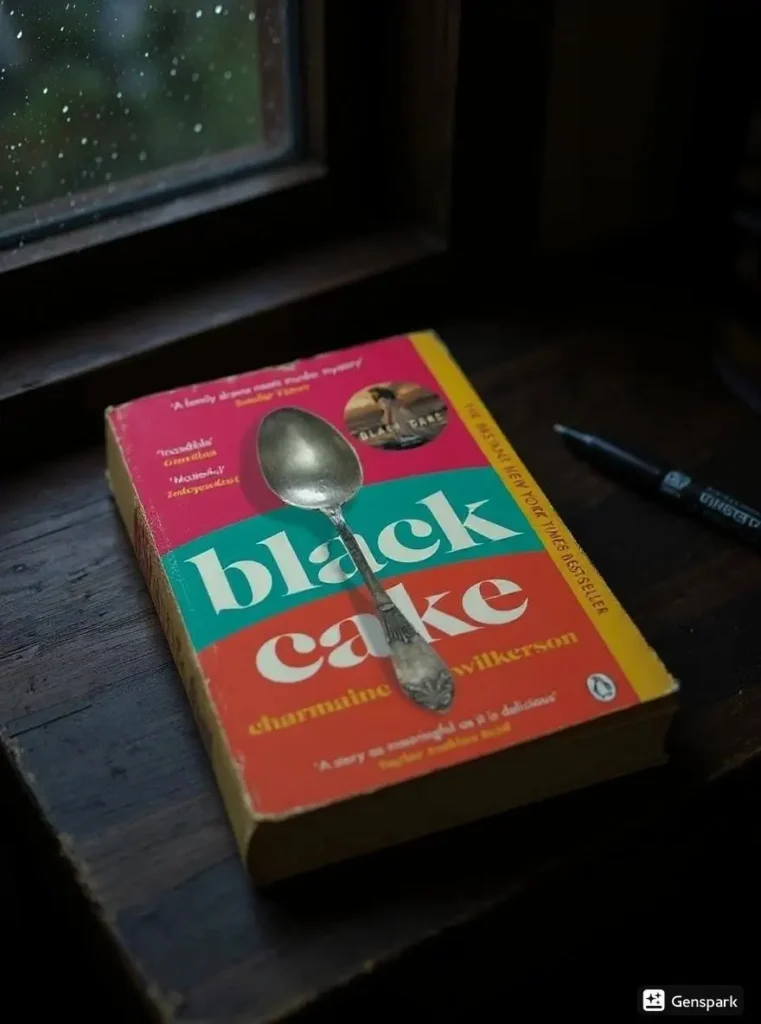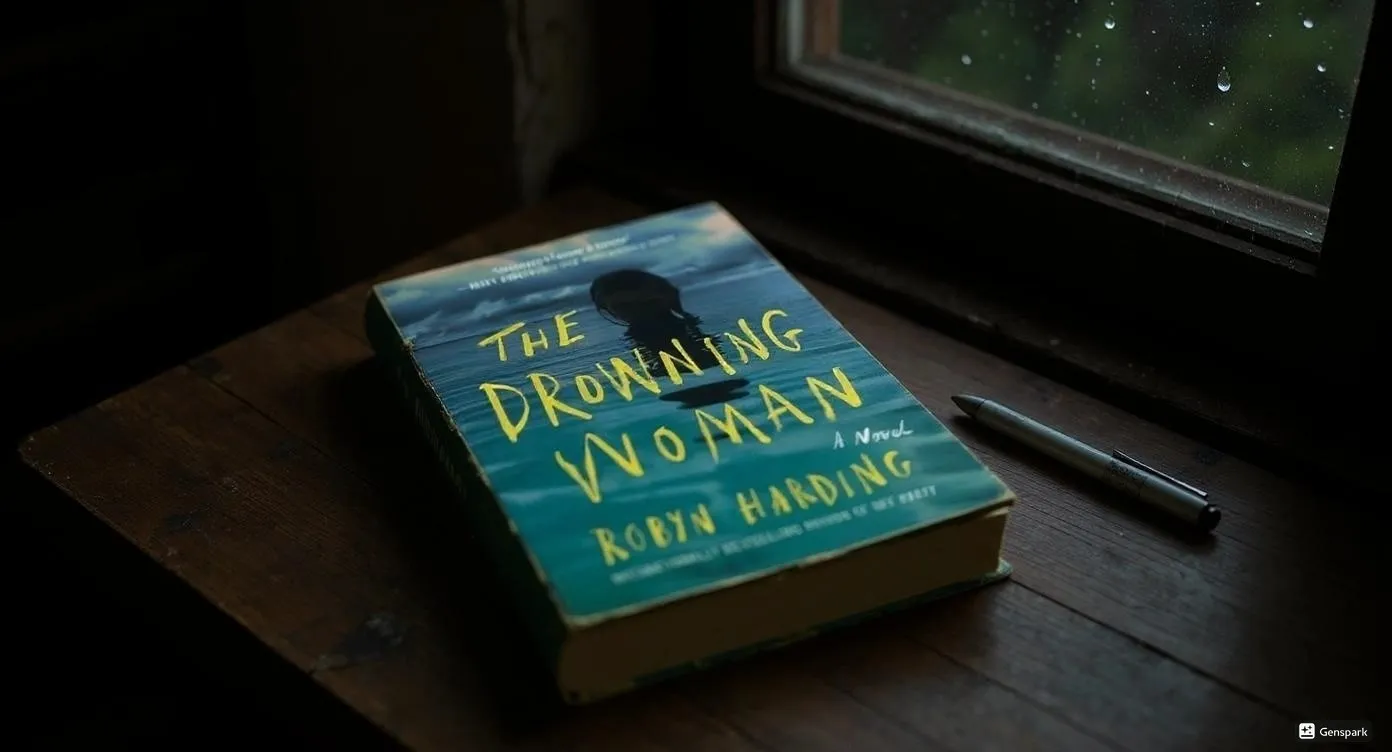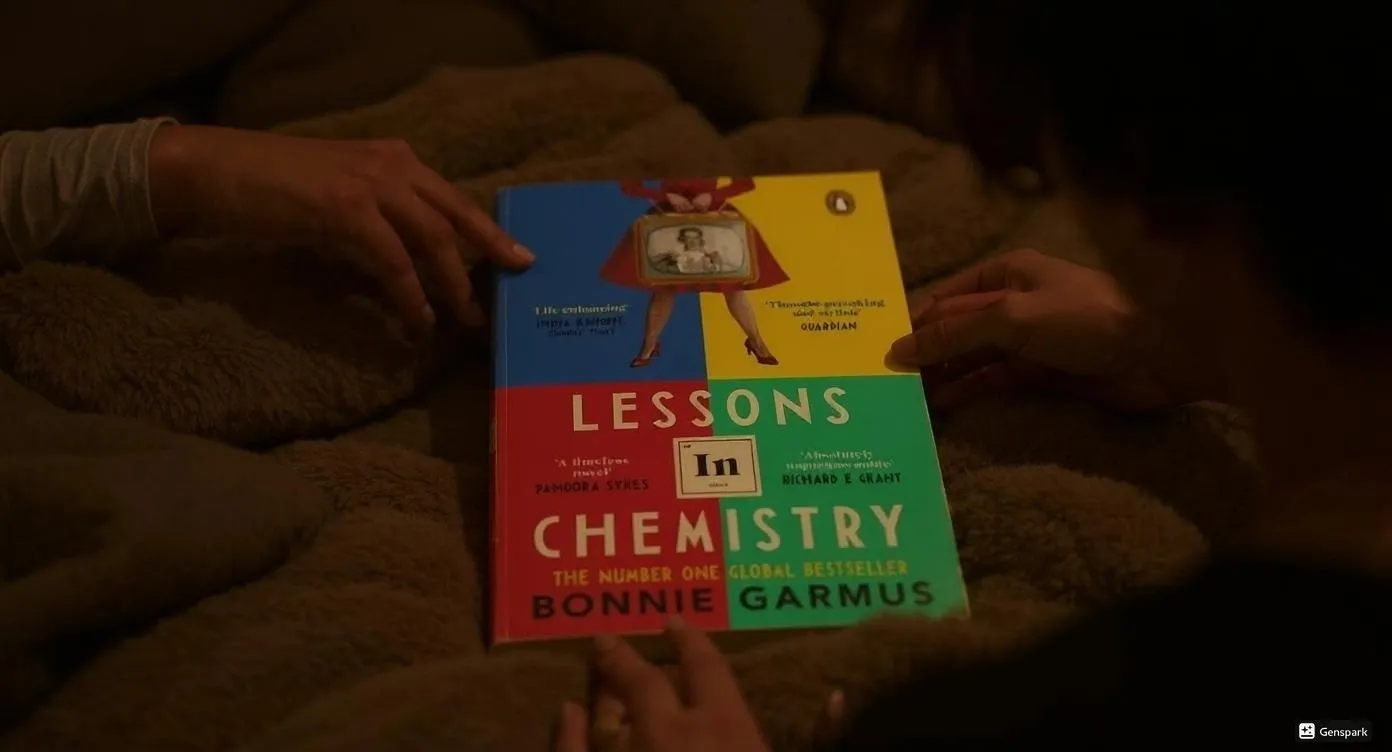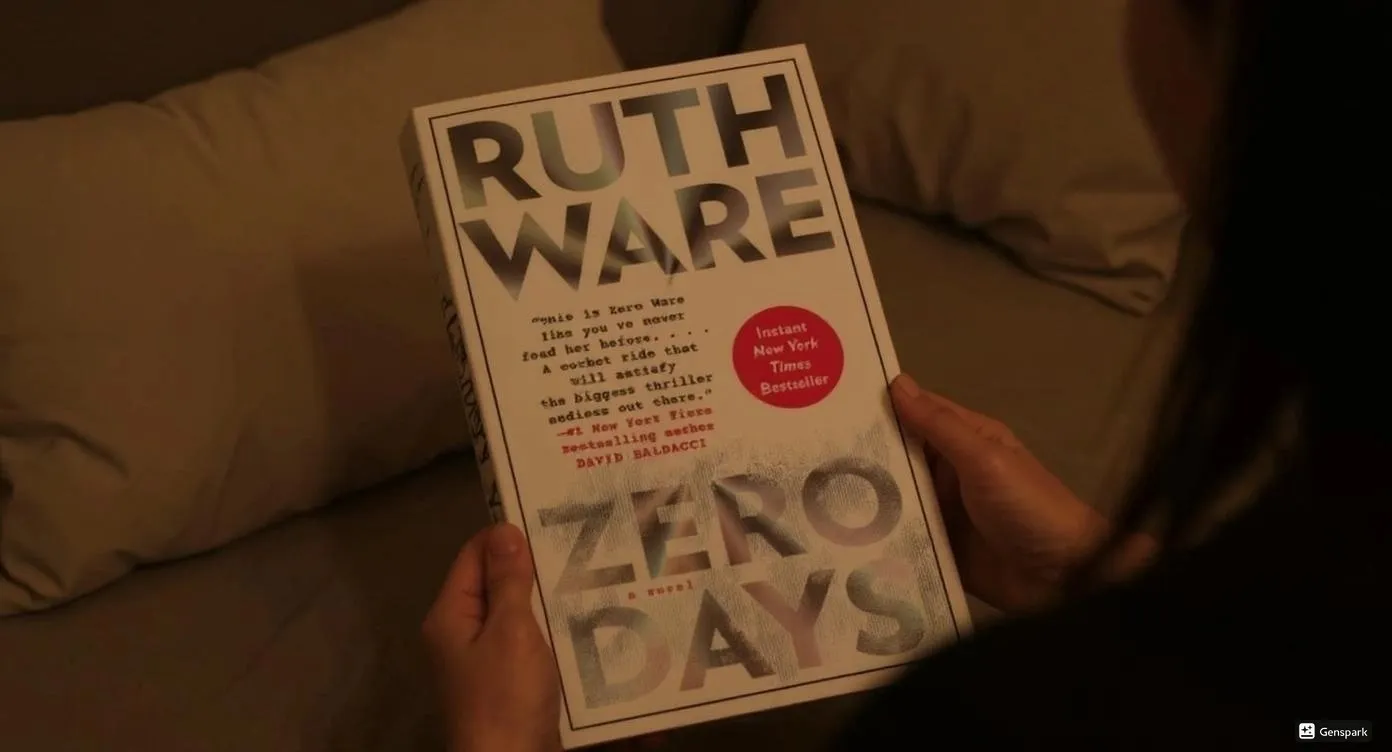I picked up Black Cake after hearing whispers about its powerful storytelling at a local bookstore. Charmaine Wilkerson’s debut novel immediately grabbed my attention with its promise of family secrets and Caribbean heritage. Reading this book felt like unwrapping layers of family history, each chapter revealing another piece of a complex puzzle that kept me turning pages late into the night.
This family saga follows estranged siblings who discover shocking secrets about their deceased mother, transforming everything they thought they knew about their identity. The book’s strength lies in its authentic portrayal of Caribbean immigrant experiences and the weight of family legacy. I found myself emotionally invested in Eleanor Bennett’s journey from a young woman named Covey to a mother carrying decades of secrets.
I recommend this book for readers who appreciate multi-generational stories with cultural depth and complex family dynamics. Byron and Benny’s reunion after years of estrangement creates a compelling foundation for revealing their mother’s extraordinary past. This novel succeeds as both a family drama and an exploration of Caribbean diaspora experiences.
Key Takeaways
The power of family recipes extends beyond food, carrying cultural memory and identity across generations. Wilkerson’s narrative structure mirrors the complexity of the titular black cake recipe – layered, deep, and requiring time to fully appreciate.
Truth-telling becomes a form of healing, even when secrets have been buried for decades. Eleanor’s voice recording serves as both confession and gift to her children.
Caribbean immigrant experiences involve constant negotiation between preserving cultural identity and adapting to new environments. The unnamed island setting allows readers to connect with universal themes of displacement and belonging.
Estrangement between family members often stems from misunderstanding rather than genuine incompatibility. Byron and Benny’s relationship demonstrates how family trauma can create distance that only truth can bridge.
Multi-generational trauma requires active work to heal, and breaking cycles of silence becomes an act of love for future generations.
Basic Book Details:
- Publishing Information: February 1, 2022 by Ballantine Books
- Genre: Literary Fiction, Family Saga, Historical Fiction
- Plot: Siblings inherit their mother’s voice recording revealing her secret past from Jamaica to California
- Series Information: Standalone novel
- Page Count: 400 pages
- Main Characters: Eleanor Bennett (Covey) – Mother with hidden Caribbean past; Byron – Devoted son struggling with family loyalty; Benny – Estranged daughter seeking truth
Plot Overview And Narrative Structure
Dual Timeline Storytelling Technique And Multi-perspective Character Voices
Wilkerson employs brief chapters that jump between multiple perspectives and timelines, creating a mosaic of family history. I appreciated how she balanced past and present without losing narrative momentum. The structure mirrors memory itself – fragmented, layered, and requiring patience to piece together.
The dual timeline moves between Eleanor’s youth in the Caribbean during the 1960s and her children’s present-day California lives. This technique allows readers to understand how past choices ripple through generations.
Eleanor Bennett’s Voice Recording Inheritance And Family Secret Revelation Framework
Eleanor’s desire for her children to share black cake coincides with revelations from her posthumous recording. This narrative device creates suspense while providing intimate access to Eleanor’s inner life. The recording becomes both plot driver and emotional anchor for the entire novel.
The inheritance structure – requiring both siblings to be present – forces confrontation with family estrangement. This setup creates natural tension while exploring themes of forgiveness and reconciliation.
Character Development And Cultural Identity Exploration
Coventina To Eleanor Bennett Transformation And Caribbean Immigrant Experience
Eleanor’s transformation from Covey to Eleanor represents more than a name change – it’s a complete reinvention born from necessity. Wilkerson draws from her own Caribbean-American background to create authentic immigrant experiences. I found Eleanor’s journey particularly compelling because it avoids simple victim narratives.
Her swimming ability becomes both literal survival skill and metaphor for navigating between worlds. The ocean serves as a bridge between her Caribbean past and American present.
Byron And Benny Sibling Dynamics Through Estrangement And Reconciliation
Benny’s years-long estrangement from her family creates the emotional core of the novel. I was struck by how Wilkerson portrays sibling relationships as both fragile and resilient. Byron’s role as the “good son” contrasts with Benny’s rebellion, yet both responses stem from the same family dysfunction.
Their reconciliation doesn’t happen through grand gestures but through shared discovery of their mother’s truth. This realistic approach to family healing resonated with my own experiences of complicated family relationships.
Literary Craft And Writing Style Analysis
Wilkerson’s Debut Novel Technique And Multi-generational Saga Construction
As a debut novelist, Wilkerson demonstrates remarkable skill in managing complex narrative threads. Her background as a journalist and award-winning short story writer clearly influences her precise, economical prose. I noticed how she builds tension through careful revelation rather than dramatic plot twists.
The multi-generational structure allows exploration of how historical events impact individual families. The novel stretches from 1960s Caribbean to present-day Southern California, creating a sweeping family saga.

Symbolism Integration From Black Cake Recipe To Ocean Swimming Cultural Metaphors
The black cake recipe functions as both literal family tradition and metaphor for cultural preservation. Like the cake itself, the story requires patience and multiple ingredients to achieve its full richness. I found this symbolism particularly effective because it connects to tangible cultural practices.
Ocean swimming represents freedom, danger, and connection to Caribbean identity. Water imagery throughout the novel links past and present, memory and reality.
Thematic Depth And Social Commentary
Caribbean Diaspora Heritage And Cultural Specificity In Unnamed Island Setting
The unnamed Caribbean island setting allows for broader representation while maintaining cultural specificity. Wilkerson’s own experience living in Jamaica and the Caribbean informs her authentic portrayal of island culture. I appreciated how she captures the complexity of Caribbean identity without exoticizing it.
The diaspora experience involves constant negotiation between homeland and adopted country. Food, language, and family traditions become vehicles for maintaining cultural connections.
Intergenerational Trauma Healing Through Truth-telling And Family Legacy Preservation
Wilkerson eloquently conveys how family secrets create emotional wounds that pass between generations. Eleanor’s recording becomes an act of healing, breaking cycles of silence that have damaged her family. I found this theme particularly relevant to contemporary discussions about family trauma.
The novel suggests that truth-telling, even painful truth, creates possibilities for genuine connection. Legacy preservation requires both honoring the past and acknowledging its complications.
Pros
The authentic Caribbean cultural details feel lived-in rather than researched. Wilkerson’s personal experience with Caribbean and American cultures creates genuine authenticity. I never felt like I was reading tourism brochure descriptions.
The brief chapter structure maintains momentum while allowing complex character development. Each chapter advances the plot while deepening emotional understanding.
Multiple perspectives create a rich, layered narrative that rewards careful reading. The various viewpoints prevent any single character from dominating the story.
The family dynamics feel realistic and complicated rather than melodramatic. Characters make believable choices that create genuine consequences.
Cons
The numerous narrative threads can feel overwhelming at times, requiring careful attention to follow all storylines. I occasionally lost track of minor characters between chapters.
Some plot revelations feel slightly convenient, particularly regarding character connections across time and geography. The coincidences sometimes strain credibility.
The pacing occasionally slows during exposition-heavy sections, particularly in the middle third of the novel. I found myself wanting more action during these passages.
Final Verdict
Black Cake succeeds as both intimate family drama and broader exploration of Caribbean diaspora experiences. Wilkerson’s emotional and eloquent writing elevates familiar themes through cultural specificity and authentic character development. I finished this book with a deeper appreciation for the complexity of immigrant families and the power of truth-telling.
The novel works best for readers who appreciate character-driven narratives with cultural depth. This book would be perfect for book clubs due to its rich discussion potential about family, identity, and cultural heritage.
While the complex structure occasionally overwhelms, the emotional payoff justifies the reading investment. This extraordinary journey through family history demonstrates how individual choices create lasting impacts across generations.
Dionysus Reviews Rating: 7/10
I recommend Black Cake for readers seeking literary fiction that combines family drama with cultural exploration. This debut novel establishes Wilkerson as a significant voice in contemporary literature.
Sip The Unknown—Discover Stories You Never Knew You’d Love!
Dionysus Reviews Has A Book For Every Mood
Biography & Memoir
Fiction
Mystery & Detective
Nonfiction
Philosophy
Psychology
Romance
Science Fiction & Fantasy
Teens & Young Adult
Thriller & Suspense
Frequently Asked Questions
What makes the black cake recipe significant beyond being a family tradition?
The black cake recipe represents cultural preservation and family memory. It requires patience, multiple ingredients, and time to mature – paralleling the novel’s themes about understanding family history. The cake becomes a tangible link between Eleanor’s Caribbean past and her children’s American present, showing how food carries cultural identity across generations.
How does the unnamed Caribbean island setting affect the story’s universality?
The unnamed island allows readers from various Caribbean backgrounds to connect with the narrative while maintaining cultural specificity. This choice prevents the story from being tied to one particular island’s politics or history, making Eleanor’s experiences representative of broader Caribbean diaspora experiences.
Why does Eleanor wait until after her death to reveal her secrets?
Eleanor’s posthumous revelation reflects her generation’s approach to family trauma – protection through silence. Her death removes the fear of judgment or disruption, allowing her to finally share truths she couldn’t speak while alive. The recording becomes both confession and gift, offering her children understanding she couldn’t provide during her lifetime.
How does the novel handle the complexity of family estrangement and reconciliation?
The estrangement between Benny and her family develops gradually through misunderstandings and unspoken tensions rather than dramatic confrontations. Reconciliation happens through shared discovery of truth rather than forced forgiveness, creating a realistic portrayal of how families can heal from years of separation.
What role does swimming play as a metaphor throughout the novel?
Swimming represents survival, freedom, and connection to Caribbean identity. Eleanor’s swimming ability saves her life literally and metaphorically, allowing her to escape dangerous situations and maintain connection to her island heritage. The ocean becomes a bridge between past and present, representing both danger and possibility for Caribbean immigrants.









